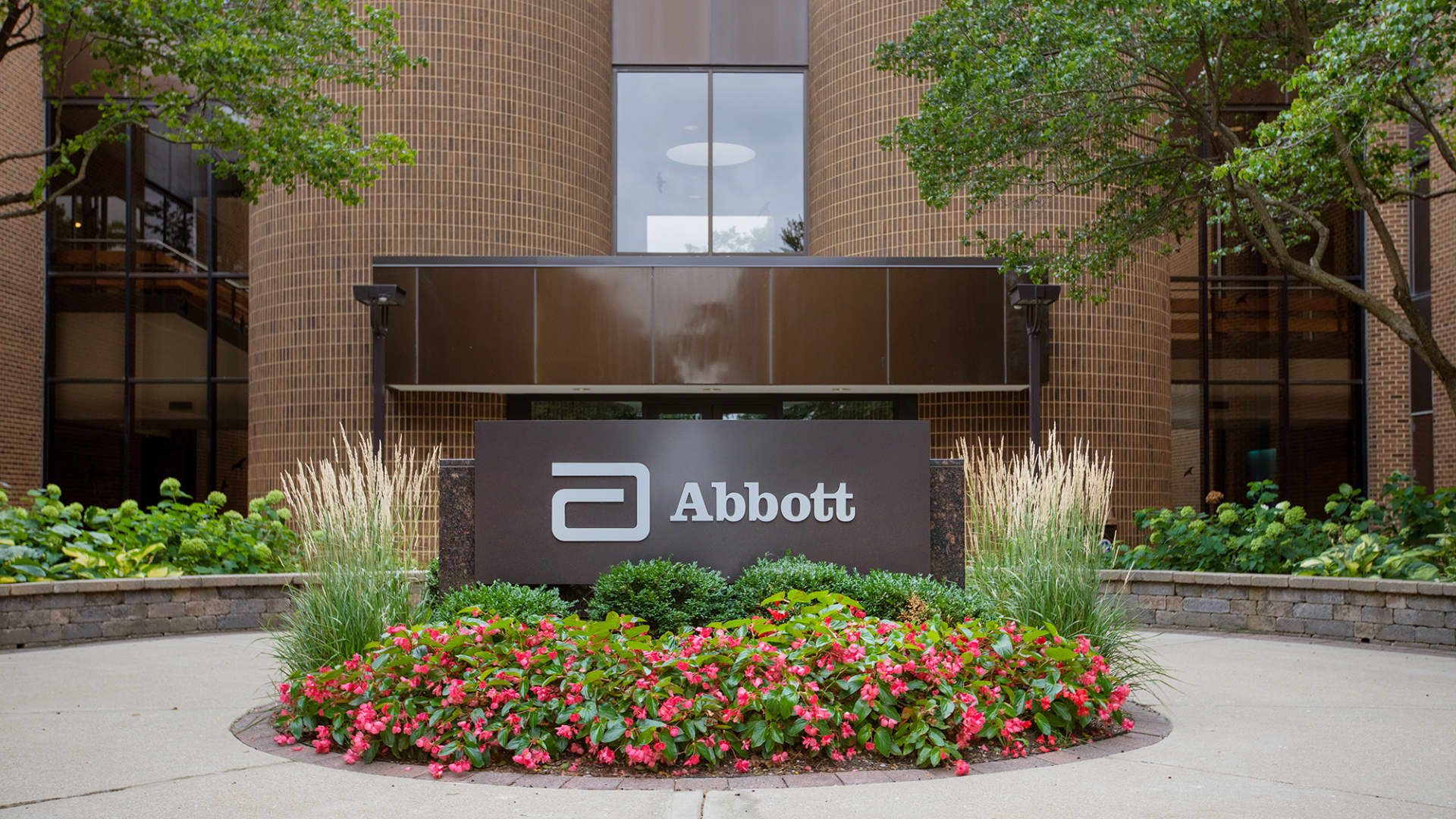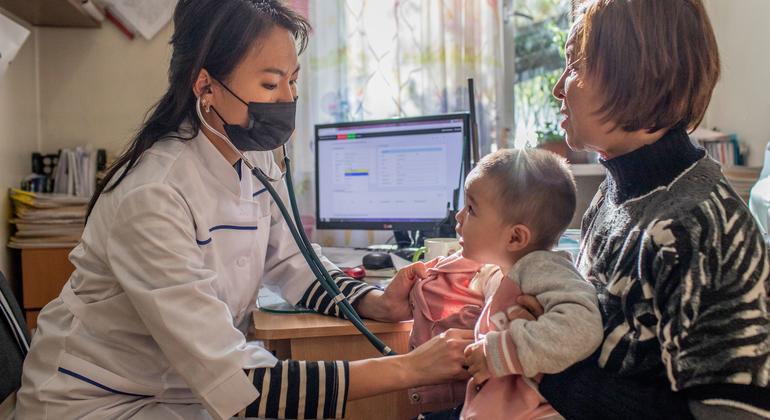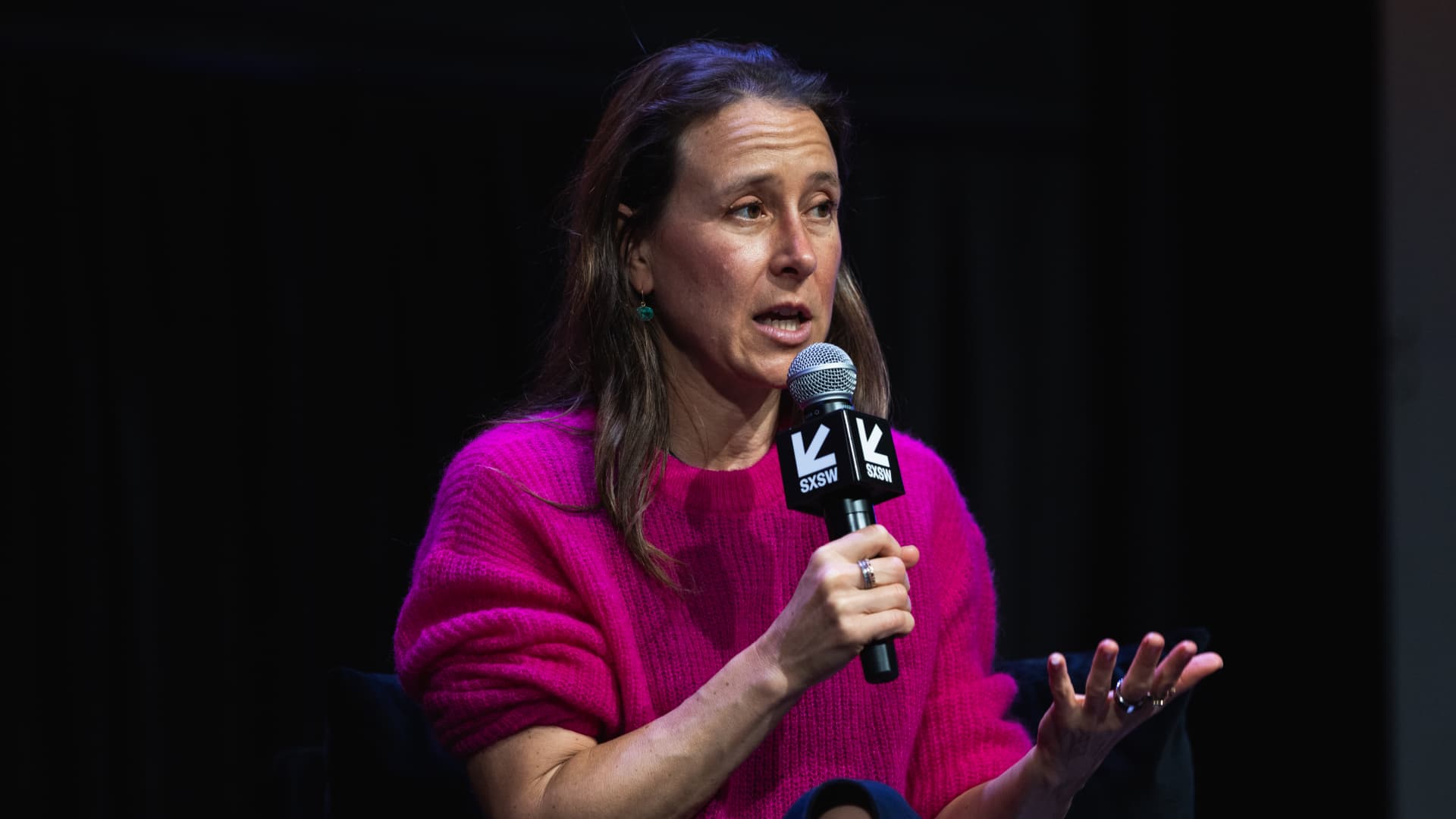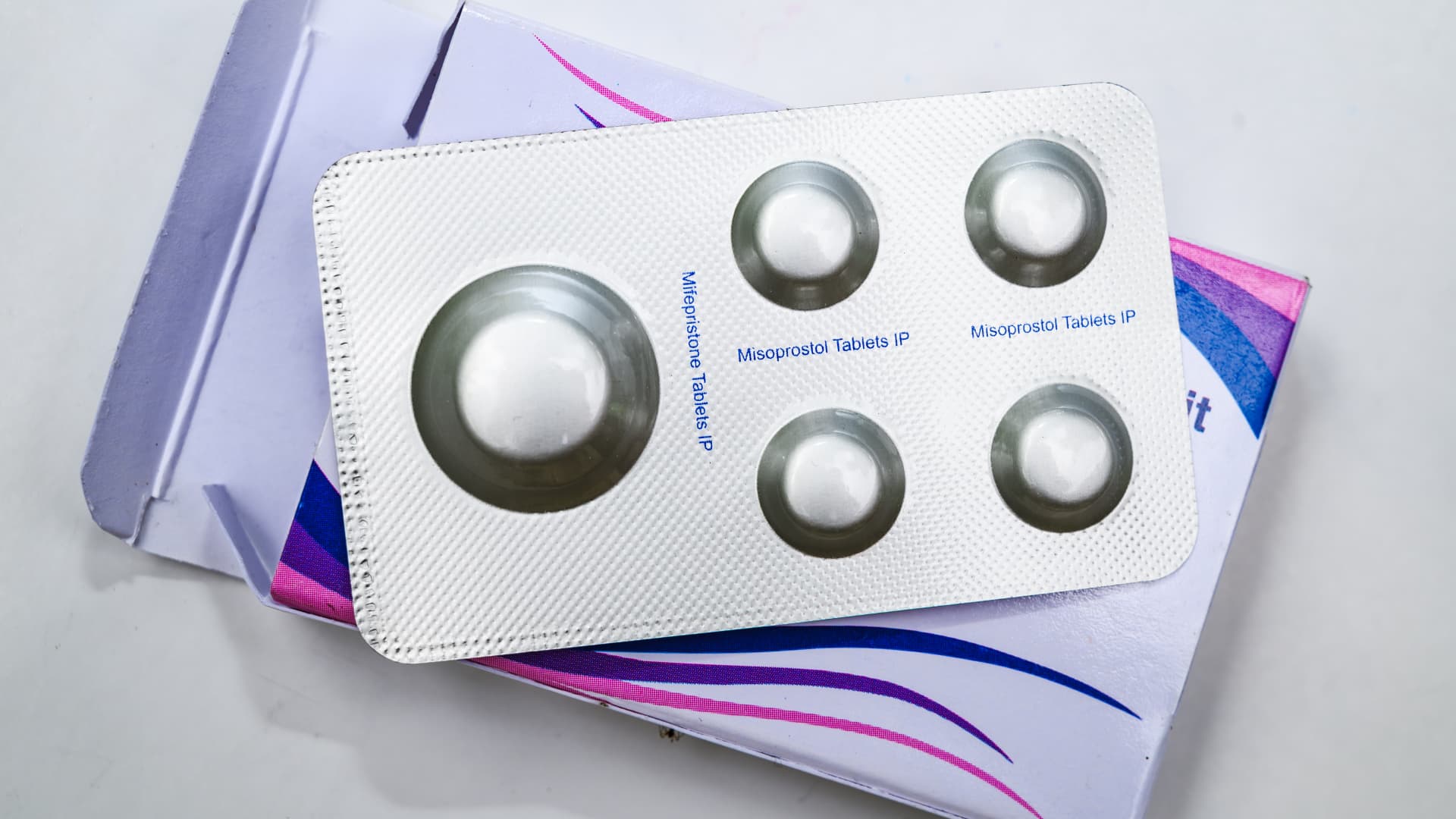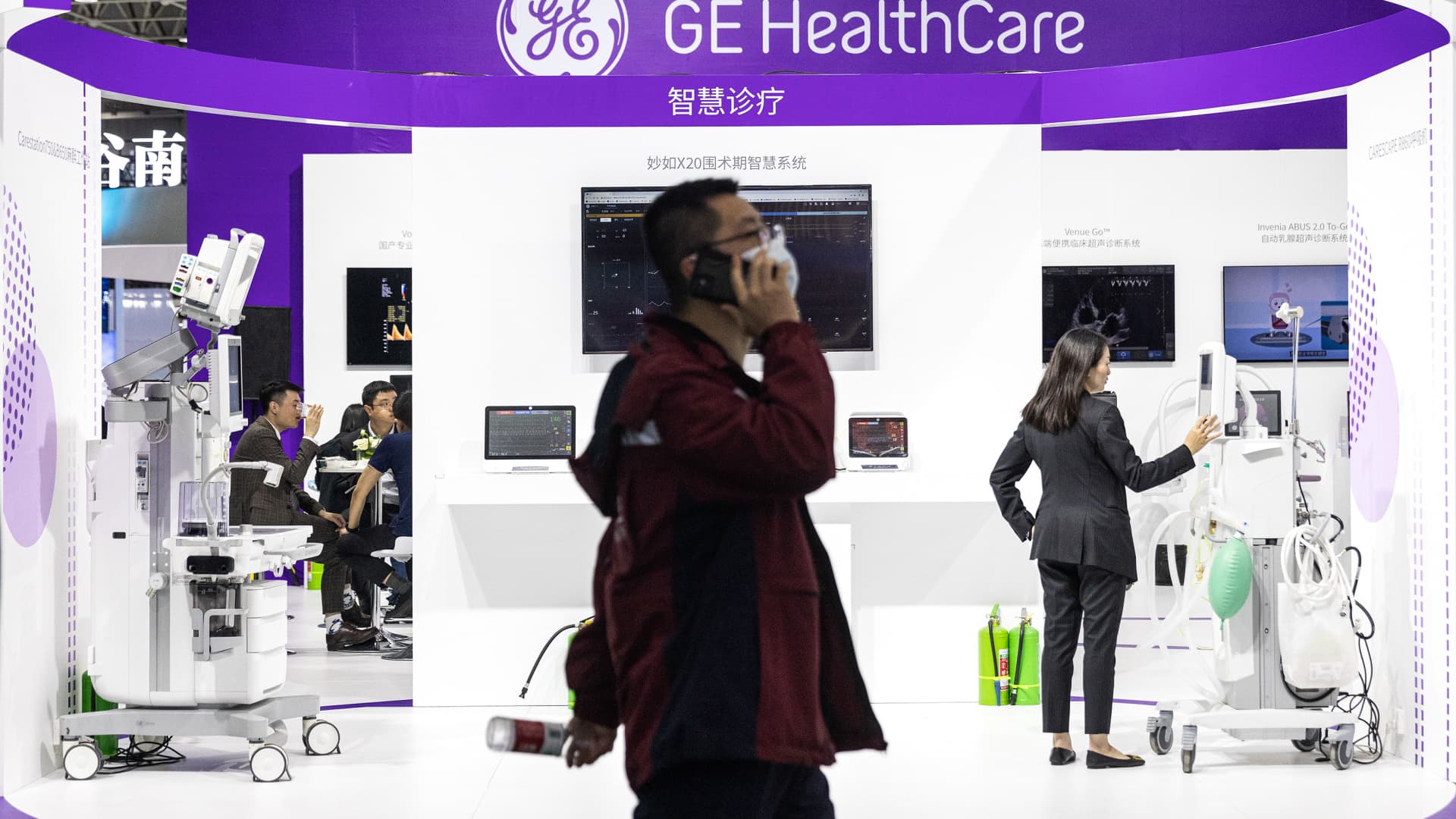Shares of Abbott Laboratories fell 3% on Wednesday after the diversified healthcare company turned in another less-than-stellar quarter. Revenue in the third quarter ended Sept. 30 rose 6.9% to $11.37 billion, missing the consensus estimate of $11.4 billion compiled by market data provider LSEG. Organic sales, excluding Covid testing results, rose 7.5%, beating the estimate of 5.9%, according to FactSet. Adjusted earnings per share (EPS) rose 7.4% to $1.30, matching expectations, LSEG data showed. In short, Abbott's third-quarter numbers weren't the best, with sales in three of its four major operating segments falling short. It was the second consecutive suboptimal quarter. With the stock less than 10% from its all-time highs, we're debating whether it's time to hit the cash register and get out of Abbott to free up portfolio space for a new name. During the Club's morning meeting on Wednesday, Jim Cramer expressed concern about Abbott and fellow Club member Danaher's exposure to China's sluggish healthcare sector. We are debating whether it makes sense to maintain both names, as we would benefit from any improvement in China through our increased position in Danaher. ABT YTD mountain Abbott Laboratories YTD Additionally, Danaher, who has struggled mightily this year, is showing signs of improvement. While it is down more than 25% from 52-week highs and nearly 30% from all-time highs reached in 2021, Danaher may well represent the best risk/reward setup. We are looking at this internally and will of course update members as our thinking evolves. As for the ongoing litigation over Abbott's specialized formula for premature babies, management didn't offer much except to say that they continue to stand behind their product and that the legal process is still ongoing. The formula in question is given to premature babies in neonatal intensive care units. It is often one of the only ways to feed these babies. The lawsuits allege that Abbott failed to adequately warn caregivers about the risks of necrotizing enterocolitis, a serious intestinal disease. Abbott has repeatedly maintained that there is no scientific evidence that the product causes or contributes to causing NEC. Why We Own Abbott is a high-quality medical technology company. The stock has faced multiple issues since we have owned it, including litigation related to its specialized infant formula; drop in Covid test sales; and concerns about the impact of the adoption of the GLP-1 drug on the company's continuous glucose monitor business. It's worth noting that the stock is up so far this year. Competitors: Dexcom, Boston Scientific, and Edwards Lifesciences Most Recent Purchase: May 29, 2024 Initiated: January 29, 2024 Seeing no reason to buy more Abbott stock on Wednesday's dip, coupled with the fact that the position is too small to justify heavy monitoring, we downgraded it to our 3 rating, meaning we will consider selling the stock to strengthen it. We are also lowering our price target for Abbott to $140 per share from $145. There is a limited amount of time in a day, so as portfolio managers we must consider the value of our time. When it comes to a position with a weight below 1% and a second disappointment in a row, we have to consider whether the time spent doing homework at Abbott is not better directed towards the follow-up, say Nike, where we already have a weighted position above 2% and want to continue building as opportunities present themselves. Guidance Abbott management tightened its full-year EPS outlook around the midpoint of $5.15, now forecasting a range of $5.12 to $5.18 versus the previous range of $5.10 to $5.20. This was in line with the consensus estimate compiled by LSEG. The team continues to expect to achieve full-year organic sales growth of 7.5% to 8%, excluding the company's Covid testing business, or 6% to 7%, if Covid testing is included. EPS guidance for the full year minus the three quarters already reported implies that management is targeting adjusted EPS in the range of $1.47 to $1.53 for the current fourth quarter. The midpoint of $1.50 was a cent ahead of what analysts were looking for, according to LSEG. Segment Comment Sales of medical devices in the third quarter were the only ones that stood out, with organic growth of 12.5% compared to the same period of the previous year. The result was double-digit growth in diabetes care, electrophysiology, rhythm management, heart failure and structural heart. Within diabetes care, specifically, sales benefited from 17.2% organic growth in continuous glucose monitors to $2 billion. Established pharmaceutical sales were well below expectations, although they still managed to increase 7.1% organically compared to the same period last year. Emerging countries that represent the most attractive long-term growth opportunities for Abbott's branded generics once again surpassed $1 billion in sales, growing 11.1% organically year-over-year. On the call, Abbott CEO Robert Ford highlighted strength in gastroenterology, cardiometabolic and pain management, citing “favorable demographic trends and growing demand for high-quality, affordable medicines.” Diagnostic sales were a drag, missing estimates and falling 7.8% organically, reflecting a nearly 28% organic decline in rapid diagnostics. Quarterly sales rose just 0.4% excluding the impact of Covid testing. Covid testing sales were just $69 million in the quarter, down from $265 million in the same period a year earlier. Global core laboratory diagnostics sales managed to grow 2.2% organically year-over-year, and excluding China, the core laboratory diagnostics business increased 7% organically, “with markets such as the US showing accelerated growth in the third quarter compared to growth in the first half of the year,” Ford noted. China remains a hurdle due to difficult market conditions, including volume-based procurement programs designed to reduce healthcare costs there. Within the point-of-care diagnostics segment, which increased nearly 8% organically, management highlighted the growing adoption of two first-of-its-kind tests: the point-of-care concussion test and the high-sensitivity troponin test used for earlier, more accurate detection of heart attacks. Sales of nutritional products, home to brands such as Ensure protein powder and PediaSure children's drinks, also fell short of expectations. It managed to grow 4% year over year, organically. Adult sales drove growth, increasing 5.4% organically, led by diabetes shakes Garantiza and Glucerna. On the call, Ford said the adult segment was led by 10% growth in international markets. (Jim Cramer's Charitable Trust is long ABT, NKE. See here for a full list of stocks.) As a subscriber to the CNBC Investing Club with Jim Cramer, you will receive a trade alert before Jim makes a trade. Jim waits 45 minutes after sending a trade alert before buying or selling a stock in his charitable fund's portfolio. If Jim has talked about a stock on CNBC TV, he waits 72 hours after issuing the trade alert before executing the trade. THE ABOVE INVESTMENT CLUB INFORMATION IS SUBJECT TO OUR TERMS AND CONDITIONS AND PRIVACY POLICY, TOGETHER WITH OUR DISCLAIMER. NO FIDUCIARY OBLIGATION OR DUTY EXISTS OR IS CREATED BY VIRTUE OF THE RECEIPT OF ANY INFORMATION PROVIDED IN RELATION TO THE INVESTMENT CLUB. NO SPECIFIC RESULTS OR BENEFITS ARE GUARANTEED.

